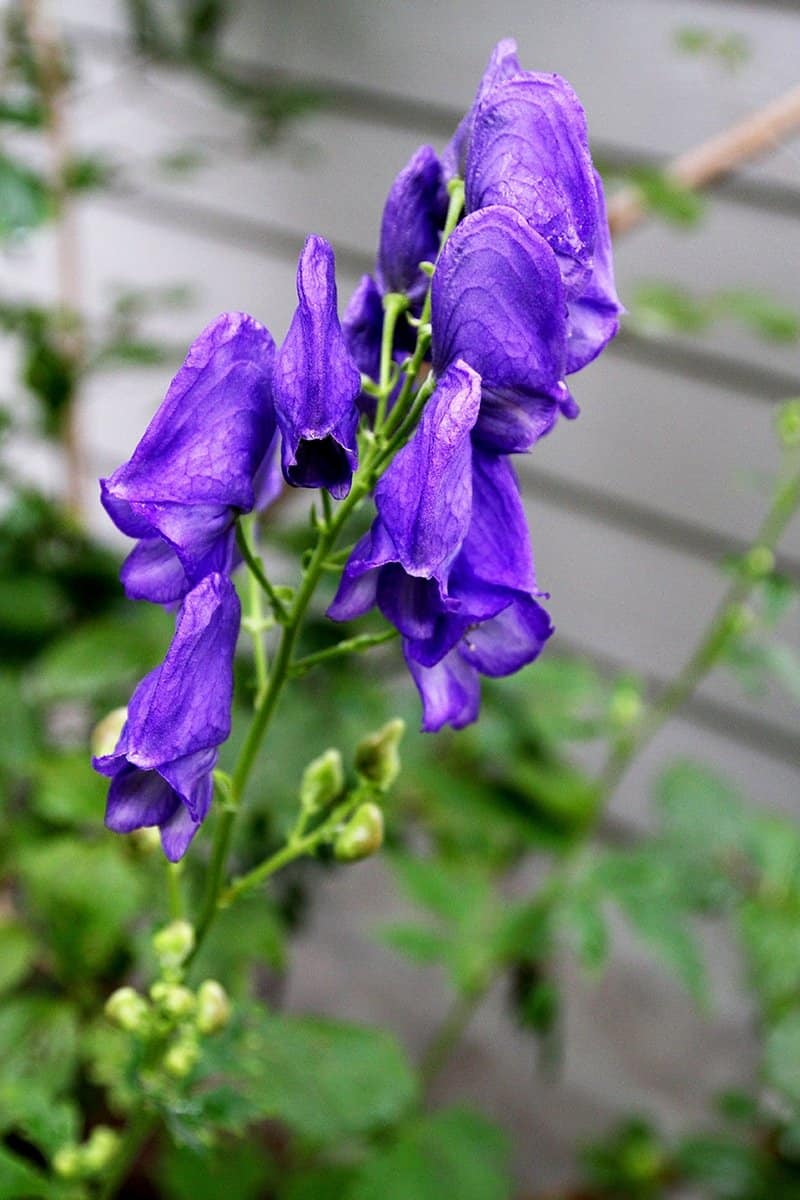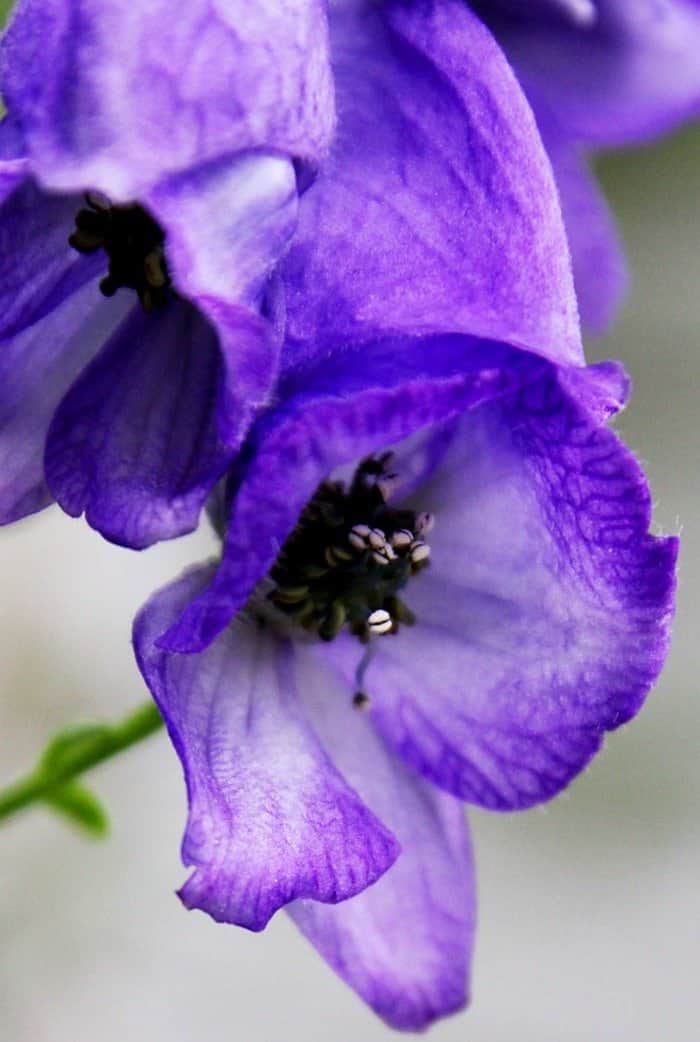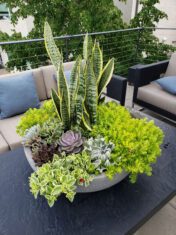Just when you think there’s nothing else left to bloom, the dramatic rich blue spires of monkshood fill your view. That is, if you had the foresight to plant this reliable Zone 3 perennial in your garden.
Sometimes called wolf’s-bane, monkshood (Aconitum species and cultivars) looks especially striking with white anemones or tan ornamental grasses. It prefers consistently moist soils and full sun, although I’ve seen healthy clumps growing in partial shade. The less sun, however, the more likely stems will need staking.
I’ve read that the common name refers to the shape of the flowers, which are said to resemble the cowls (a hooded, sleeveless cloak) worn by monks. Another common name is devil’s helmet, also fitting, because there is a significant risk to planting monkshood in your garden, especially if curious children are about. All parts of the plant, including its roots, are extremely poisonous. When arrows were commonly used for hunting and warfare, the tips were dipped in juice from the roots to poison victims. Its advised to wear gloves when working with the plants.
“Monkshood, always a late surprise” describes several cultivars to look for if you wish to expand your monkshood collection.

Zinnias making a comeback, they say
An article in Gardenista about the resurgence of zinnias’ popularity begins with the sentence: “Why do flowers go in an out of fashion?” Good question, although the bigger question for me is why even label flowers as fashionable or not?
A row of pink zinnias growing in my father’s vegetable garden is the first flower memory I have. I’ve grown zinnias myself from time to time, both from purchased transplants and from seed sown directly into the garden. There is more choice if growing from seed, and I also found my seed-sown plants were usually sturdier and healthier than those I bought as transplants. (Purely an anecdotal observation.)
I think it may be time for me to sow a few zinnias again next spring—after all, it seems the fashionable thing to do.
News on the Colorado potato beetle battle
Colleen Zacharias recently reported on new developments in the battle against Colorado potato beetles in the Winnipeg Free Press. Manitoba is home to the second largest potato industry in Canada.
Helen Tai, a researcher and geneticist at the Fredericton Research and Development Centre in New Brunswick, where the research is taking place, has developed two new potato varieties that show a resistance to the devastating beetles. The project involved introducing pest-repelling genes found in wild potato species into the two new varieties. These new varieties show a 50 to 80 per cent reduction in beetle feeding.
Colleen’s article also describes a new golden potato “set to knock the classic Yukon Gold potato off its pedestal.” It’s called AAC Canada Gold-Dorée, and currently available in some Ontario and Quebec grocery stores.
Her passion just mushroomed
Joanne Anderson has loved growing and foraging for mushrooms for years. So much so, the Hanover-area resident decided to start an online business earlier this year selling kits to grow gourmet mushrooms at home. You can read about her mushroom-growing journey in the Owen Sound Sun Times and find her kits at mushroomsetc.ca.
Commiserating over dahlias
Here’s an excerpt from a note a reader sent to me about last week’s item on dahlia storage: “I want you to know that I whooped when I read your description of dahlia storage efforts, because they replicate my own, all except the final successful one. I have been watching Gardeners’ World all summer and perk up every time Monty Don does anything with dahlias. In the most recent episode, I hung on every word thinking: yes, maybe, could THAT work? Right up until he got to the part about the garage or garden shed as long as the temperature is above freezing and then I wailed out loud and my husband said what he always does: “Because he’s in ENGLAND.”









